Sudan timeline October-December 2022: Anti-junta protests swell amid regime crackdown, tribal strife displaces thousands as economy bleeds
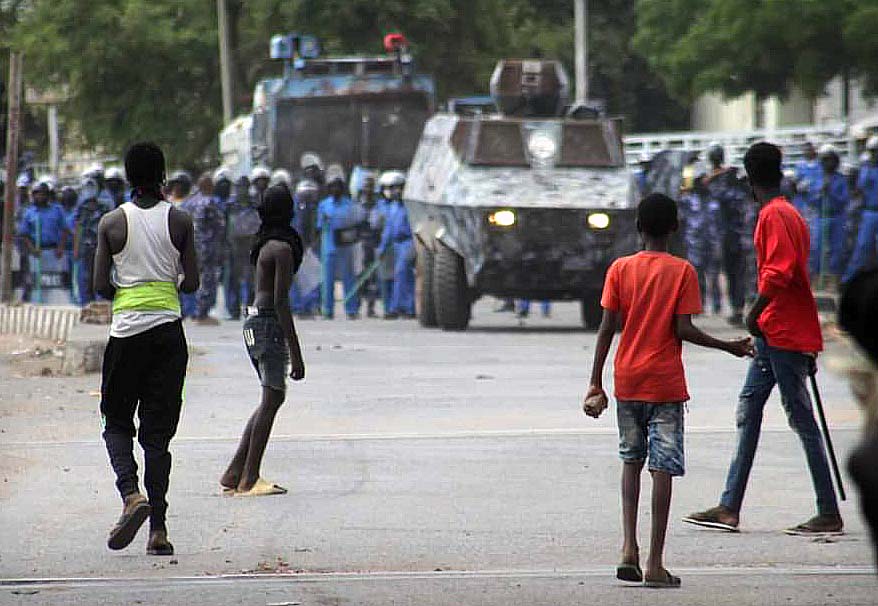
Protesters face security forces during demonstrations in Khartoum (File photo: Social media)
DABANGA SUDAN –
During the final quarter of 2022, Sudan’s Blue Nile region, West Kordofan, and South Darfur saw Tribal attacks that left dozens of people dead and thousands displaced. Resistance committees announced more street protests to condemn the one-year anniversary of the October 25 coup d’état. The military junta and civilian groups started talks behind closed doors that may lead to the formation of a new civilian government.
Meetings between the FFC-CC and the military, under the auspices of the AU-IGAD-UNITAMS Trilateral Mechanism, about a solution for the current political impasse lead to an initial agreement. The authorities enforce their oppression of freedom of speech and gatherings. Economists denounce the “chaotic economic policies” of the authorities. Farmers expect a meagre harvest. About a third of the Sudanese population will need humanitarian aid in 2023.
As 2022 draws to a close, more than 40 political and civil society groups sign the Framework Agreement with the junta amid protests from various sides. The FFC-CC hopes to convince the hold-out groups to join the agreement as well, but also meets internal resistance. The Arab Socialist Ba’ath Party, a longstanding FFC-member, leaves the coalition. Rizeigat attack more than 10 villages in Beleil, South Darfur, leading to the displacement of more than 16,000 people.
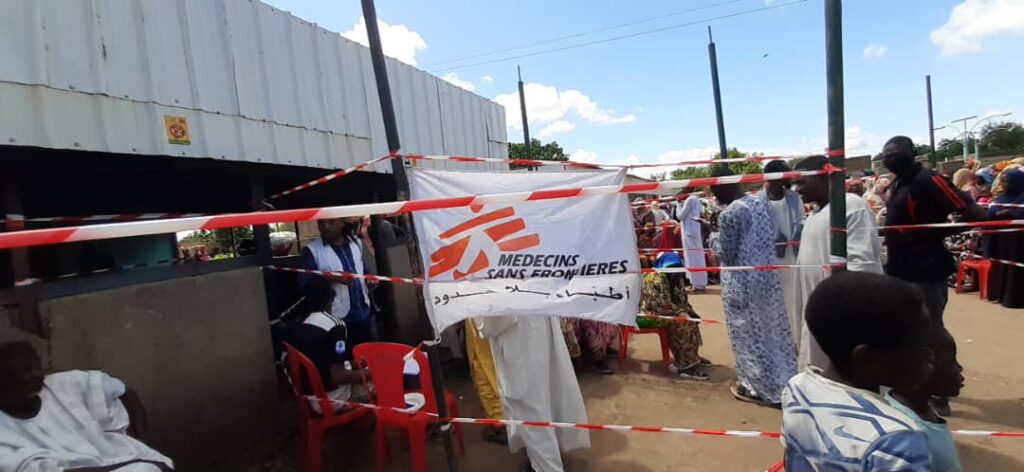
October: Insecurity is growing in many parts of Sudan, including the capital. Tribal attacks in Blue Nile region and in West Kordofan leave dozens of people dead and thousands displaced. Resistance committees announce more street protests to condemn the one-year anniversary of the October 25 coup d’état. The military junta and civilian groups start talks behind closed doors that may lead to the formation of a new civilian government. The suppression of freedoms further increases as affiliates of the Al Bashir regime who returned to their posts after the coup tighten their grip on security institutions. Traders across the country strike to protest excessive tax increases.
October 1: Volker Perthes, Special Representative of the UN Secretary-General in Sudan and head of the UN Integrated Transition Assistance Mission in Sudan (UNITAMS) says that the youth of Sudan deserve to translate their aspirations into reality.
October 3: Darfur continues to suffer from mass displacement and acute food insecurity. The USA calls on Sudan to expedite the implementation of the 2020 Juba Peace Agreement (JPA). Governor of Darfur Minni Minawi criticises the Sudanese army and the Rapid Support Forces (RSF) for failing to join the Darfur peace force. Khartoum resistance committees announce escalation of protests this month to mark the one-year anniversary of the October 25 coup d’état. Hamar tribesmen demand a new state of Central Kordofan.
October 4: The Ministry of Energy and Oil announces a reduction in fuel prices. Economists say that it will have a minimal effect on the country’s economy and transportation tariffs, “as the import of fuel is monopolised by brokers”. A criminal court in River Nile state acquits three men accused of killing an activist in 2019.
October 5: Sudan’s resistance committees release the unified Revolutionary Charter for the Establishment of the People’s Authority. The Vice President of Sudan’s Sovereignty Council and Commander of the RSF, Lt Gen Mohamed ‘Hemeti’ Dagalo, announces a school feeding programme that will benefit 400,000 students.
October 6: The mainstream Forces for Freedom and Change, the FFC-Central Council and international and Sudanese NGOs oppose Sudan’s re-election to the UN Human Rights Council. A number of anti-coup protesters are injured in Khartoum. Lorry drivers face ‘600 per cent transit fee increase‘.
October 7: Kidnappings, looting, and thefts are becoming increasingly common in the Sudanese capital.
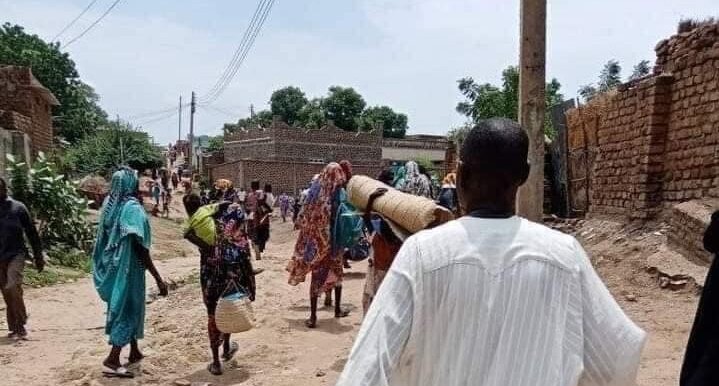
October 8: The National Accord Forces (NAF), dominated by rebel signatories of the Juba Peace Agreement, and the pro-military Sudan People’s Call sign a political declaration that proposes a Supreme Council of the Armed Forces to be part of a new government. The Sudanese Teachers Committee accuses the Ministry of Finance of reneging the financial reimbursement arrangement of April.
October 9: Farmers are facing ‘one of the worst agricultural seasons experienced in the country’. The authorities use excessive violence to disperse anti-junta demonstrators in Khartoum.
October 10: Sudan is re-elected by the UN General Assembly to serve on the UN Human Rights Council (HRC) for the period 2023-2025. Traders in El Gedaref and White Nile state embark on a strike again to protest a tenfold tax increase levied at market vendors nationwide.
October 11: The Sudan Transparency and Policy Tracker (STPT) warns that the ‘dismal performance of Sudan’s economy will continue if military rule persists’. The National Consensus Forces (NCF), an alliance of progressive political parties, reject any political settlement with the military junta following leaks about talks between the junta and the FFC-CC, brokered behind closed doors by the Sudan Quartet (USA, Saudi Arabia, UAE, and the UK). Farmers in Beleil, South Darfur, complain about insecurity and call on the state government to intervene to protect the agricultural season.
October 12: Traders in El Gezira and South Kordofan close their shops to protest the excessive tax increases. Gen El Burhan reportedly reaches an initial agreement with the FFC-CC on a possible solution for the political impasse following the 2021 coup.
October 13: At least 13 people are killed in tribal attacks in Blue Nile region. 27 protesters are wounded during pro-democracy Marches of the Millions in Khartoum.
October 14: The National Umma Party (NUP) reports a ‘rapid acceleration’ towards a political agreement between opposition parties after days of deliberations on a possible agreement with those responsible for the coup d’état of October 2021.
October 15: Government schoolteachers demonstrate in Khartoum over salary demands.
October 16: The UN Office for the Coordination of Humanitarian Assistance (OCHA) in Sudan warns that the damage to farms caused by heavy rainfall “will exacerbate the already worrying levels of food insecurity“ in the country.
October 17: The NAF alliance rejects the “bilateral settlement” between the FFC-CC and the military. At least 116 protesters have reportedly been killed and more than 7,000 others have been injured since the October coup.
October 18: Skirmishes between Misseriya and Nuba tribesmen continue in Lagawa, West Kordofan. White Nile state bans motorcycles in an attempt to reduce banditry.
October 19: More than 10 people are killed in clashes in Wad El Mahi in Blue Nile region. The Sudanese army and RSF accuse the Sudan People’s Liberation Movement-North headed by Nuba leader Abdelaziz El Hilu (SPLM-N El Hilu) of shelling the area of Lagawa. Minister of Finance Jibril Ibrahim states that the World Bank will provide humanitarian support to Sudan.
October 20: The FFC-CC says they do not agree on continued impunity for the military. A police force raids an art gallery in Khartoum and detains nine people.
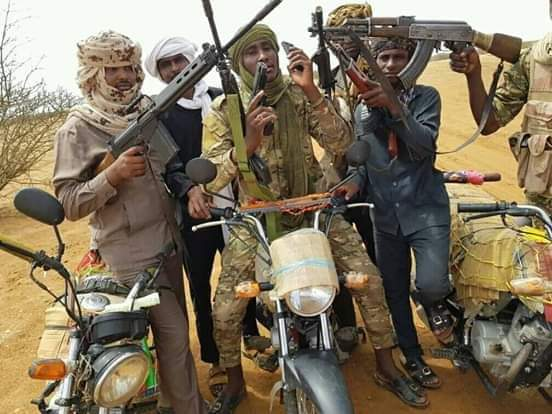
October 22: Hamar tribesmen in West Kordofan suspend their protest against the border demands of the Misseriya. The death toll of the tribal attacks in Wad El Mahi in Blue Nile region has risen to nearly 200.
October 23: Angry protesters in Ed Damazin, capital of Blue Nile region, call for the dismissal of the governor, as he has not been able to restore calm in the area. Four people are killed in tribal fighting in West Kordofan. A protester is killed during anti-junta demonstrations in Khartoum. The UN urges restraint one year after Sudan coup. The acting Council of Ministers approves the proposal of the Ministry of Finance to amend the income tax for 2023 amidst protests in the country. The Humanitarian Aid Commission (HAC) in Khartoum cancels the registration of the Sudanese Consumer Protection Society.
October 24: Members of the SPLM-N Democratic Revolutionary Movement split-off group headed by Yasir Arman decide that they will focus their policies on the rural areas in the country. Residents of Abu Hamad, River Nile state, demand the expulsion of mining companies from the area.
October 25: Hundreds of thousands of people in Sudan take to the streets to mark the one-year anniversary of the October 25 coup. In Khartoum, a protester is killed. The Sudanese Journalists Syndicate says that the press in the country has faced unprecedented targeting since the October coup.
October 26: The most prominent point of contention in the talks between the FFC-CC and the junta is the military’s demand for immunity from prosecution.
October 27: Analysts blame the putschists for the country’s economic woes.
October 29: Detained Wajdi Saleh and other members of the FFC-CC face ‘political targeting‘.
October 30: Farmers in Central Darfur complain about destroyed crops, caused by an early release of livestock on their farms. Displaced in North Darfur and refugees in neighbouring Chad call for protection and humanitarian aid.
October 31: A major section of the Khartoum Petroleum Refinery has been shut down after sabotage to a pipeline in West Kordofan.
November: Meetings between the FFC-CC and the military, under auspices of the AU-IGAD-UNITAMS Trilateral Mechanism, about a solution for the current political impasse are leading to an initial agreement. The authorities enforce their oppression of freedom of speech and gatherings. Economists denounce the “chaotic economic policies” of the authorities. State school teachers announce new protest actions for a better pay. Farmers expect a meagre harvest. About a third of the Sudanese population will need humanitarian aid in 2023.
November 1: The Darfur Bar Association (DBA) announces that 350 Darfuris, including 12 minors, are illegally held in prisons throughout Sudan. Members of the former regime’s lawyers syndicate attack the Lawyers House of the Sudanese Bar Association (SBA) in Khartoum. The number of member groups of the FFC-CC that are in favour of an agreement with the military junta seems to be limited. Lawyer and politician Wajdi Saleh is detained again following a new complaint.
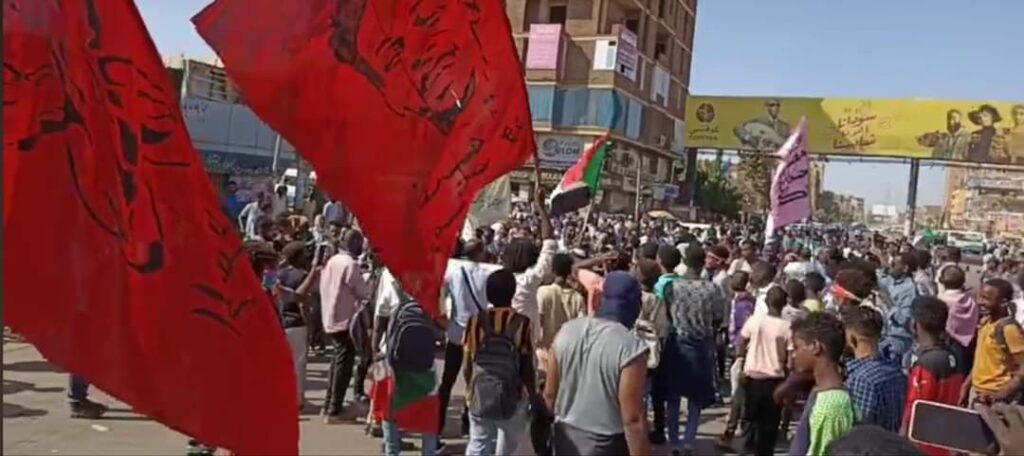
November 2: The Journalists Association for Human Rights condemns the “increasing brutal restriction“ on the press since the coup d’état of October 25, 2022.
November 3: Members of the NAF and the mainstream Democratic Unionist Party (DUP) announce the formation of the Forces for Freedom and Change-Democratic Block (FFC-DB). At least 74 protesters are injured during anti-junta demonstrations in Khartoum.
November 5: The governor of Blue Nile region directs the Ministry of Education to facilitate the return to schools, though many people who fled renewed attacks in Wad El Mahi are still occupying school buildings.
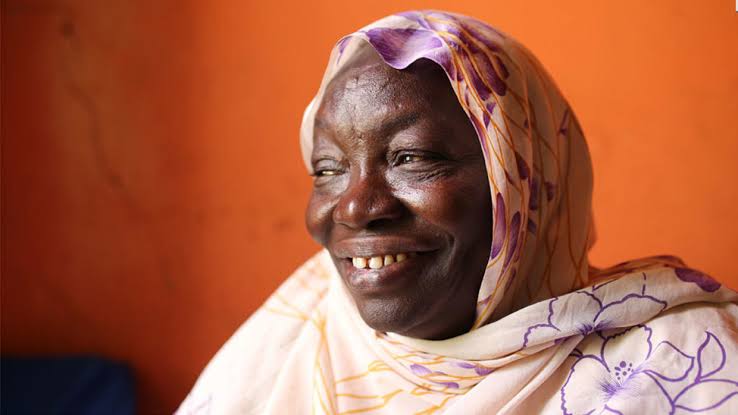
November 6: The Central Bank of Sudan reports that the country’s trade deficit reached $3.5 billion in the third quarter of the year. Lt Gen El Burhan launches an attack on affiliates of the ousted Al Bashir regime and confirms that talks about a new political framework are being held.
November 7: Radio Dabanga and Rasd Human Rights Monitor in Darfur report a number of violent attacks on people. Farmers in Northern State expect the agricultural season to fail.
November 8: Thousands of demonstrators across Sudan join the Marches of the Millions to denounce violence used against demonstrators in November last year. 56 of them are injured in Khartoum. OCHA Sudan reports that 15.8 million people in Sudan, about a third of the population, will need humanitarian aid in 2023.
November 9: El Burhan renews Sudan’s international climate commitments at the COP27 climate summit in Egypt. Saudi Arabia pledges $3 billion in a joint investment fund for Sudan. A young man dies in police custody in Khartoum.
November 10: The Trilateral Mechanism begins talks with the Sudanese Bar Association about their transitional constitutional framework. A financial analyst calls the sudden 20 per cent increase in the price of petrol a sign of ‘chaotic economic policies‘. El Obeid, capital of North Kordofan, is hit by a severe dengue fever outbreak.
November 12: Authorities at Khartoum International Airport allegedly prevent film director Philip Cox from entering the country.
November 13: El Burhan confirms negotiations on a new constitutional framework. UN High Commissioner for Human Rights Volker Türk arrives in Sudan. The Central Bureau of Statistics reports that the annual inflation fell to 102.6 per cent in October.
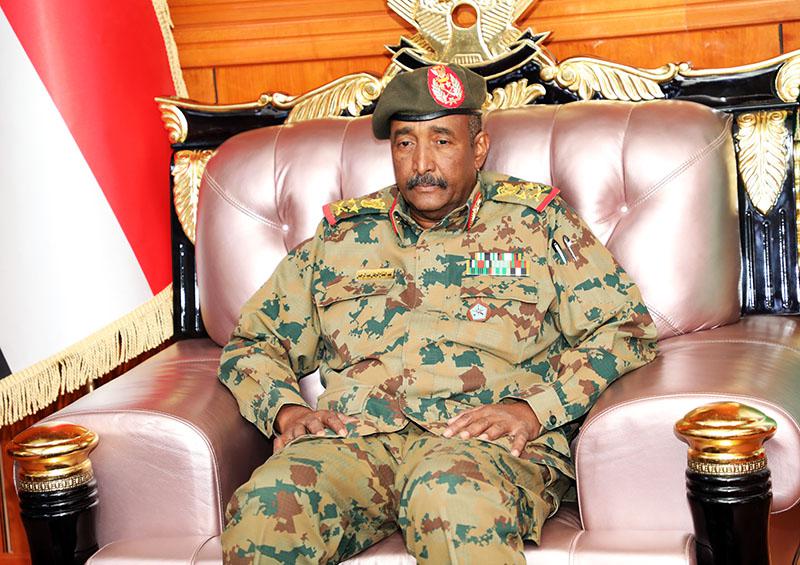
November 14: Five people are killed in a tribal attack in Blue Nile region. The cooking gas crisis in Khartoum is growing. Farmers of the El Gezira and El Managil Agricultural Scheme discuss the pros and cons of forming professional associations, to address the liberalisation of land ownership.
November 14: The FFC-CC have reached an agreement with the military “on roughly 80 per cent of the issues”. El Burhan defends the Sudanese police amidst rising police brutality.
November 15: Many Sudanese are ‘desperate and afraid’ as the economy becomes increasingly fragile.
November 16: OCHA Sudan reports that at least 48 people, including mediators, have recently been killed in Misseriya-Rizeigat clashes in Central Darfur.
November 17: The FFC-CC expects to sign a framework agreement, the first of two agreements with the military junta ‘soon’. 58 demonstrators are injured in Khartoum. Climate change ‘may pose one of Sudan’s biggest future risks’. More dengue fever cases are reported in the country.
November 20: Six people are killed and a village burns to the ground in renewed tribal clashes in West Kordofan. 31 of the 350 illegally detained Darfuris in Sudan prisons are released on bail. The upcoming FFC-CC agreement with the junta is widely criticised.
November 21: Pharmacists expect the doubling of medicine prices after the liberalisation of the special Dollar rate for medicines. Sudan is witnessing its worst outbreak of dengue fever in over a decade. Beja leader Sayed Tirik rejects the proposal of the Trilateral Mechanism to participate in a conference on the eastern Sudan crisis. Abdelwahid El Nur, leader of the mainstream Sudan Liberation Movement (SLM-AW) in Darfur rejects the upcoming agreement with the military.
November 22: The Sudan Revolutionary Front (SRF) alliance of rebel movements, which signed the Juba Peace Agreement and backed the coup, announces its support for the upcoming framework agreement.
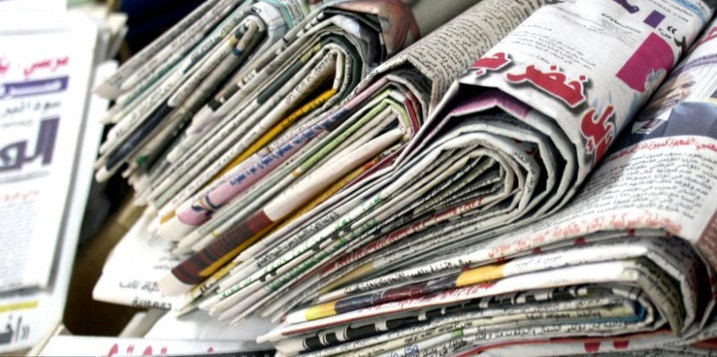
November 24: The mainstream FFC says it will ‘very soon’ hold a crucial meeting with the military on the draft Framework Agreement. A demonstrator dies of his wounds sustained during anti-junta protests in Omdurman the day before. Activists in Red Sea state condemn the toxic impact of gold mining in the region. Sources say that drug abuse among eastern Sudan’s youth reaches unprecedented levels.
November 26: The SLM-AW accuses Sudan’s military and paramilitary forces of attacks on villages in Darfur’s Jebel Marra.
November 27: The FFC-CC and other opposition groups say they are ready to sign a framework agreement on a new government of technocrats with the military junta.
November 28: Government schoolteachers all over Sudan embark on a one-day strike, demanding better pay.
November 28: Medics and lawyers condemn the Khartoum police forces’ use of tear gas launchers to shoot stones or glass at demonstrators. Women tea and food sellers in Khartoum protest against renewed violent police campaigns against them. A delegation of the UN Security Council assesses the situation in North Darfur.
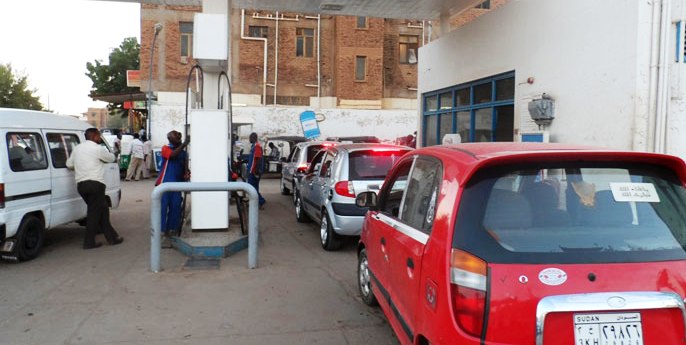
November 29: Activists report illegal logging, charcoal burning, and gum tapping in Sudan’s woodlands.
November 30: The Trilateral Mechanism holds “a fruitful meeting” with the mainstream Democratic Unionist Party (DUP) which recently joined the FFC-DB. El Burhan’s decision to suspend the work of trade unions provokes ‘mixed reactions’.
December: More than 40 political and civil society groups sign the Framework Agreement with the junta amid protests from various sides. The FFC-CC hopes to convince the hold-out groups to join the agreement as well, but also meets internal resistance. The Arab Socialist Ba’ath Party, a longstanding FFC-member, leaves the coalition. Rizeigat attack more than 10 villages in Beleil, South Darfur, leading to the displacement of more than 16,000 people. Analysts warn that the delay of the 2023 national budget will negatively impact the already dire economic situation in the country. More than 200 illegally detained West Darfuris embark on a hunger-strike. Dozens of them are released later this month.
December 1: The US administration declines to invite Sudan to the US-Africa Leaders’ Summit this month because the African Union suspended its membership after the 2021 coup d’état. A delegation of the Trilateral Mechanism meets with Abdelaziz El Hilu, head of the SPLM-N, in the South Sudanese capital Juba, in an attempt to convince him to sign the upcoming Framework Agreement.
December 2: The FFC-CC expects to sign the final text of the Framework Agreement with the military ‘tomorrow’. 43 demonstrators in Khartoum are injured during protests against the agreement.
December 3: The status of the Framework Agreement becomes unclear after conflicting reports. The FFC-DB hails the appointment of Sayed Tirik, head of the mainstream High Council of Beja Nazirs, as its deputy chair. The Sudanese Oil Workers Association reports “a new incident of sabotage in West Kordofan targeting the country’s oil infrastructure”. Street protests erupt in Kabakabiya, North Darfur, against the continuing insecurity in the area.
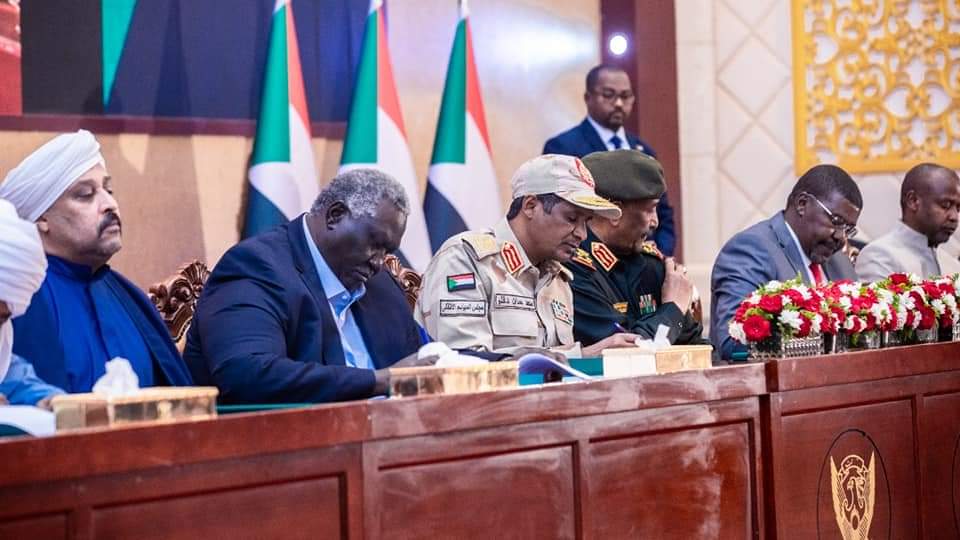
December 4: Pro-democracy groups are divided over the signing of the Framework Agreement.
December 5: More than 40 political and civil society groups sign the Framework Agreement with the military junta at the Republican Palace in Khartoum. El Burhan says during the signing ceremony that “the military’s final exit from the political process must be followed by the formation of a non-partisan government. Hemeti calls the 2021 coup ‘a mistake’. More than 40 demonstrators are wounded in protest marches against the deal. Beja protesters block the Southern Port in Red Sea state in protest against the Framework Agreement.
December 6: UNITAMS and the international community laud the signing of the Framework Agreement. OCHA Sudan warns that conflict, natural disasters, disease outbreaks, and the economic crisis form the most important risks to Sudan in 2023.
December 7: The head of UNITAMS tells the UN Security Council that the Framework Agreement may ‘signal a way out of the insecurity sparked by the 2021 coup’. Many Sudanese ‘shrug their shoulders’ at the agreement. The USA says it will hold to account ‘spoilers who undermine Sudan’s democratic progress’. The Umma Party, member of the FFC-CC, hopes to convince non-signatories to join the Framework Agreement. Teachers working at government schools start a two-day strike.
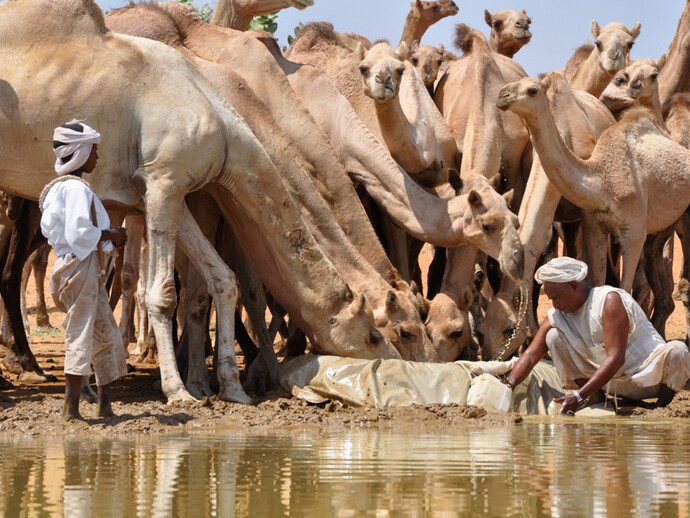
December 8: Demonstrations under the slogan ‘Reject the false power’ in Sudan meet heavy repression. 54 protesters are wounded in Khartoum. The cooking gas crisis continues in various parts of the country. Sources say that allies of ousted Omar Al Bashir are behind the tribal violence in West Kordofan. A workshop in Khartoum calls for amendments to procedures and laws regarding rape victims’ rights to legal abortion.
December 9: Attacks, robberies, and abductions continue in Darfur.
December 10: At least 24 people are killed in an ambush in West Kordofan. The conditions in the newly established Delling camp for displaced people from West Kordofan are reportedly “worse than dire“.
December 11: The Sudanese Teachers Committee announces the closure of state schools throughout the country on seven more days this month to protest the authorities’ refusal to increase the minimum wage. More than 200 people from West Darfur, held without charges in various prisons in Sudan, begin a hunger strike. The judge dealing with the trial of tortured detainees in Khartoum orders a criminal case against the director of Kober Prison.
December 12: The FFC-CC announces that consultations on the outstanding issues of the Final Agreement with the military junta will soon begin.
December 13: Demonstrations in the Sudanese capital under the slogan “Overthrow the coup and the settlement“ leave 73 people injured. Doctors say that some of them are affected by chemicals in water cannons, others were hit by stones shot at them by tear gas launchers. The Arab Socialist Ba’ath Party leaves the FFC-CC alliance.
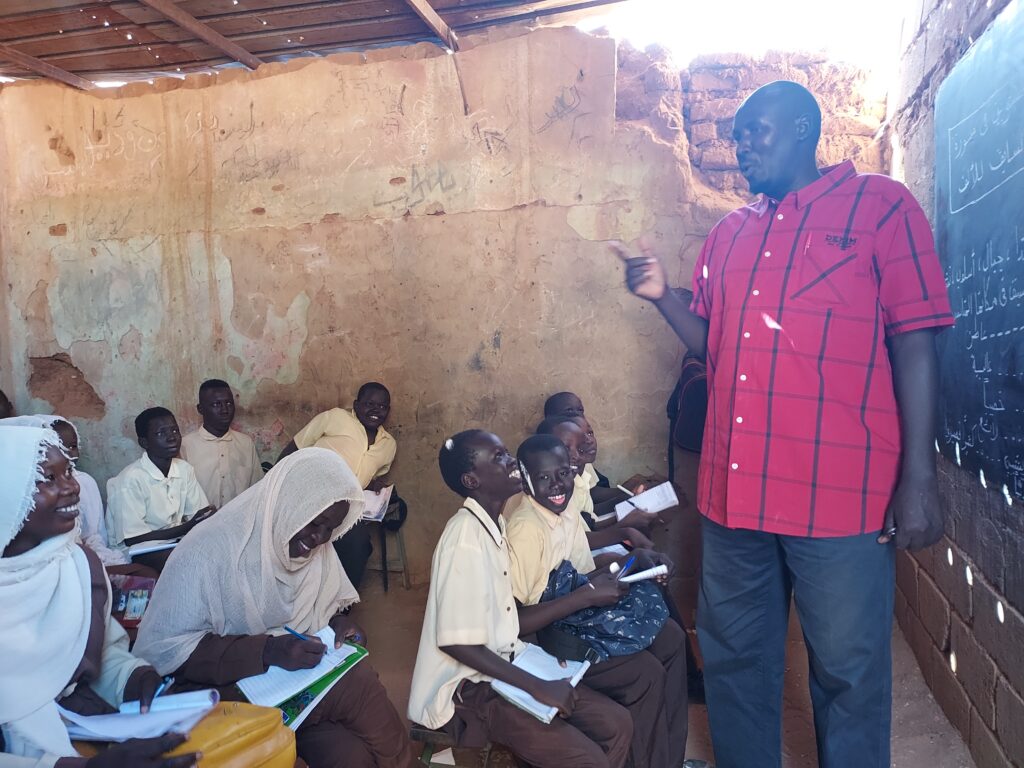
December 14: Reports reach Radio Dabanga about deadly attacks on people in Darfur and Kordofan. Five people are killed in tribal clashes in South Kordofan.
December 15: 207 West Darfur detainees, illegally held in various prisons in the country, continue their hunger strike. Relatives of people killed during anti-junta demonstrations in Khartoum organise a vigil to protest the alleged decision of the judiciary to abolish ‘special courts for the martyrs’. The Supreme Court turns down an appeal by the Sudanese Bar Association to be re-instated.
December 16: 57 of the 220 West Darfuris illegally detained in various prisons in the country are released. An army soldier sets fire to a church in El Gedaref.
December 18: Tens of thousands of Sudanese take to the streets to commemorate the beginning of the 2018 December revolution. Striking teachers consider Sudan’s Minister of Education ‘an obstacle to change‘.
December 20: Ousted president Al Bashir pleads full responsibility for the 1989 coup.
December 21: The High Council of Beja Nazirs wing led by Ibrahim Adarob rejects the invitation by the Trilateral Mechanism to participate in the upcoming Final Agreement talks.
December 22: The FFC-CC denies setting a specific date target for the Final Agreement with the junta as internal negotiations take longer than expected. Its stance that not all groups are entitled to sign the Framework Agreement sparks criticism.
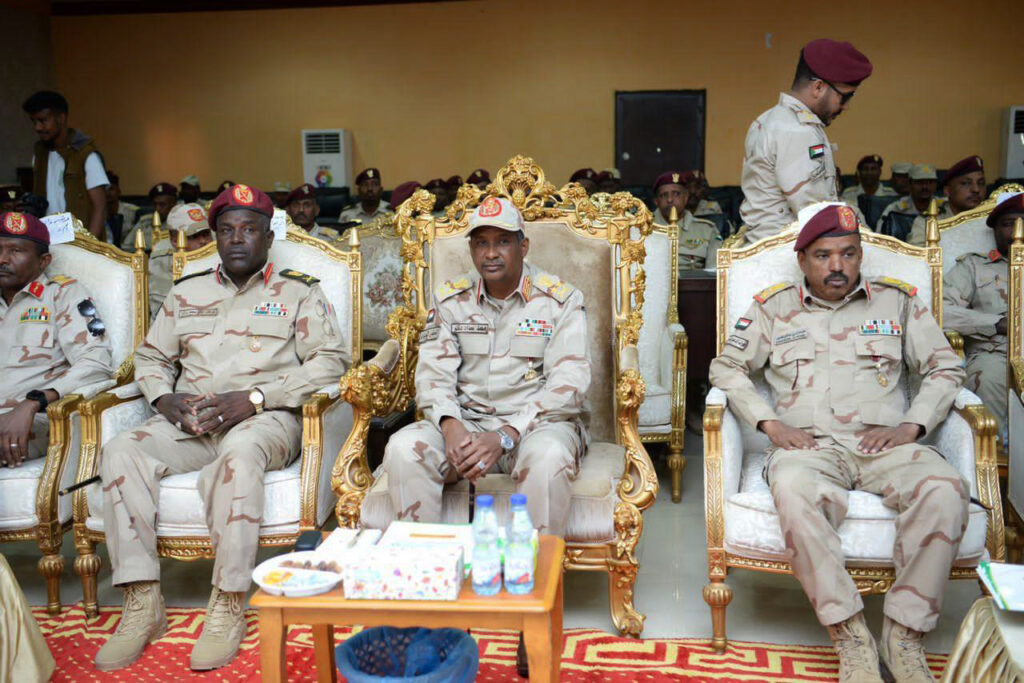
December 23: At least seven people are killed in attacks on villages in Beleil, near the South Darfur capital Nyala, on Wednesday and today.
December 24: The death toll of the Beleil violence rises to 15, prompting the South Darfur authorities to impose a State of Emergency. Economists criticise the delay in the 2023 budget approval and warn of its negative effects on the economy. Resistance committees in South Kordofan reject the return of gold mining companies to Ghadeer locality. Native administration leaders in the Blue Nile region call for the dismissal of the governor because of his “weak response” to the ongoing crisis. Hemeti says that any member of the police and other security forces will be held accountable if they violate the law.
December 25: Policemen raid homes of South Sudanese Christians in Sennar.
December 26: Reports about a new wave of attacks by ‘herders, RSF, and gunmen’ in Darfur reach Radio Dabanga. More than 16,000 people became displaced by the violence in Beleil last week. Employees of the Ministry of Industry and the staff of tax offices demand a pay rise and better work conditions. At least 42 protesters sustain injuries during anti-junta demonstrations in Khartoum.
December 27: Tribal fighting erupts in Abu Zabad, West Kordofan, amid “a complete absence of law enforcement forces“. The Port Sudan Prison administration in Red Sea state prevents lawyers from meeting West Darfur detainees who are on hunger strike in the prison. Teachers continue their strike for higher salaries and university students protest fee increases in Khartoum.
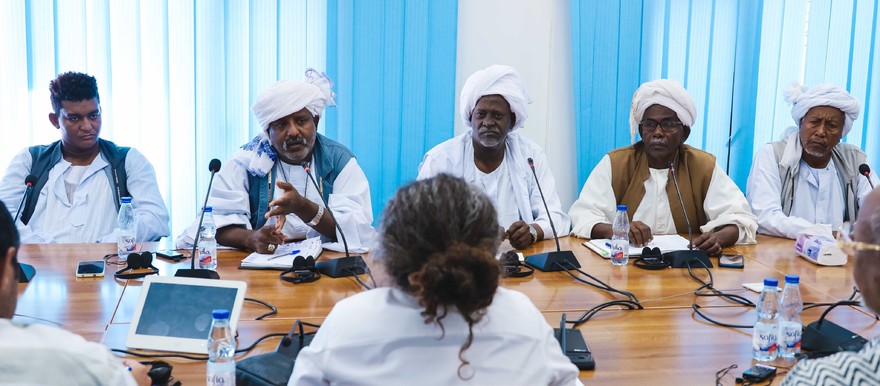
December 28: Two people are killed in an attack on a market south of the Hameedia camp for the displaced in Zalingei, capital of Central Darfur.
December 29: Hemeti visits South Darfur to investigate security concerns.
December 30: The Ministry of Finance and Economic Planning presents the draft budget for 2023 for discussion to the Council of Ministers. Members of the Greater Omdurman Resistance Committees and other protesters commemorate the people killed during anti-junta protests one year ago.
December 31: The Sudanese Professionals Association (SPA) is organising workshops in preparation for dialogues on the five outstanding issues that have to be agreed on, first internally, and later with the military junta, in order to start a new transitional period governed by a civilian government.
Previous timelines:
Sudan timeline April-June 2020: Covid-19 marks all aspects of life, inflation soars
Sudan timeline January-March 2020: Little relief to the country’s economic, security woes
Sudan timeline October-December 2019: Interim government put to the test
Sudan timeline July-September 2019: Turbulent transformation from tyranny







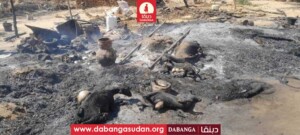



 and then
and then